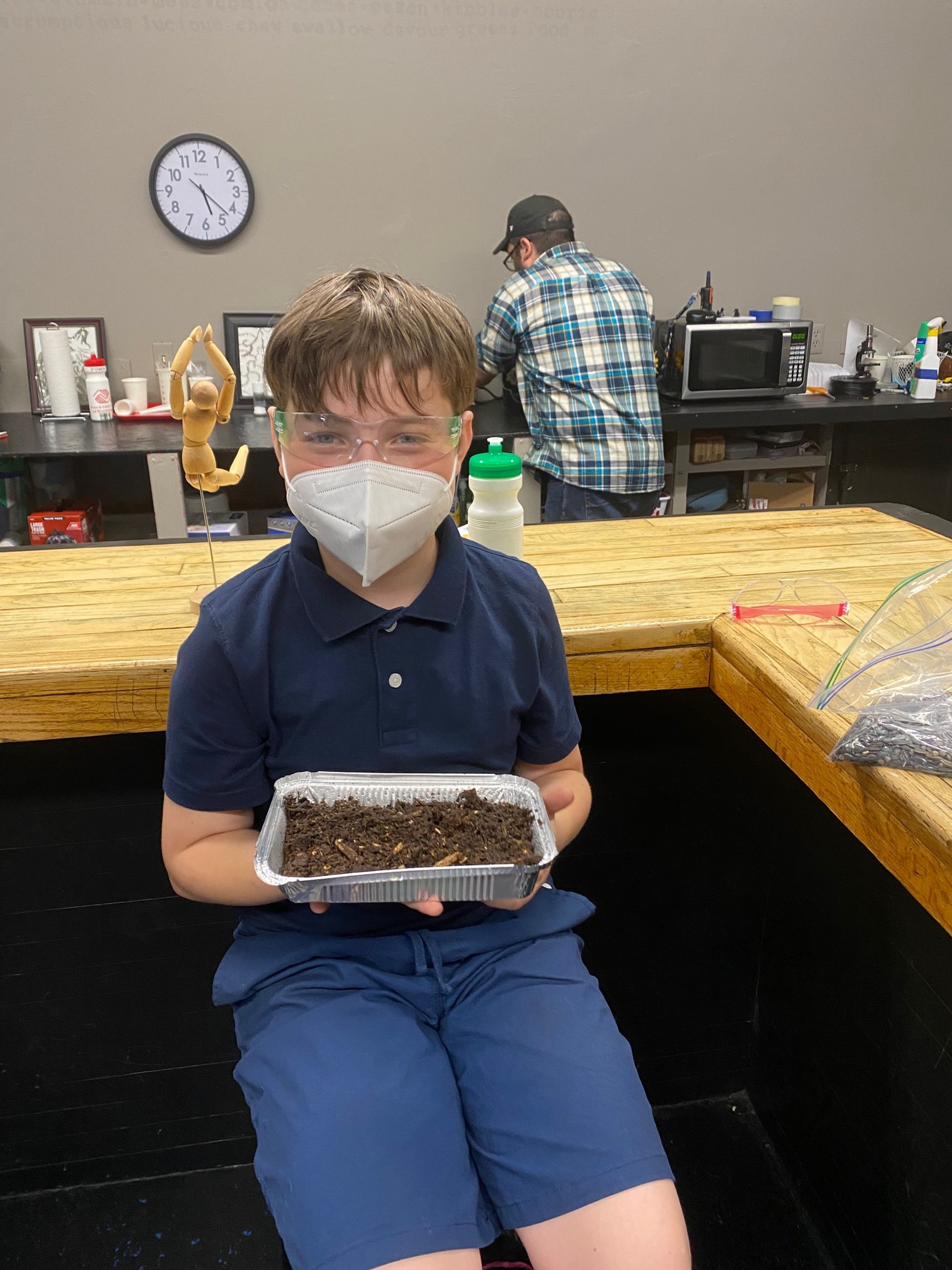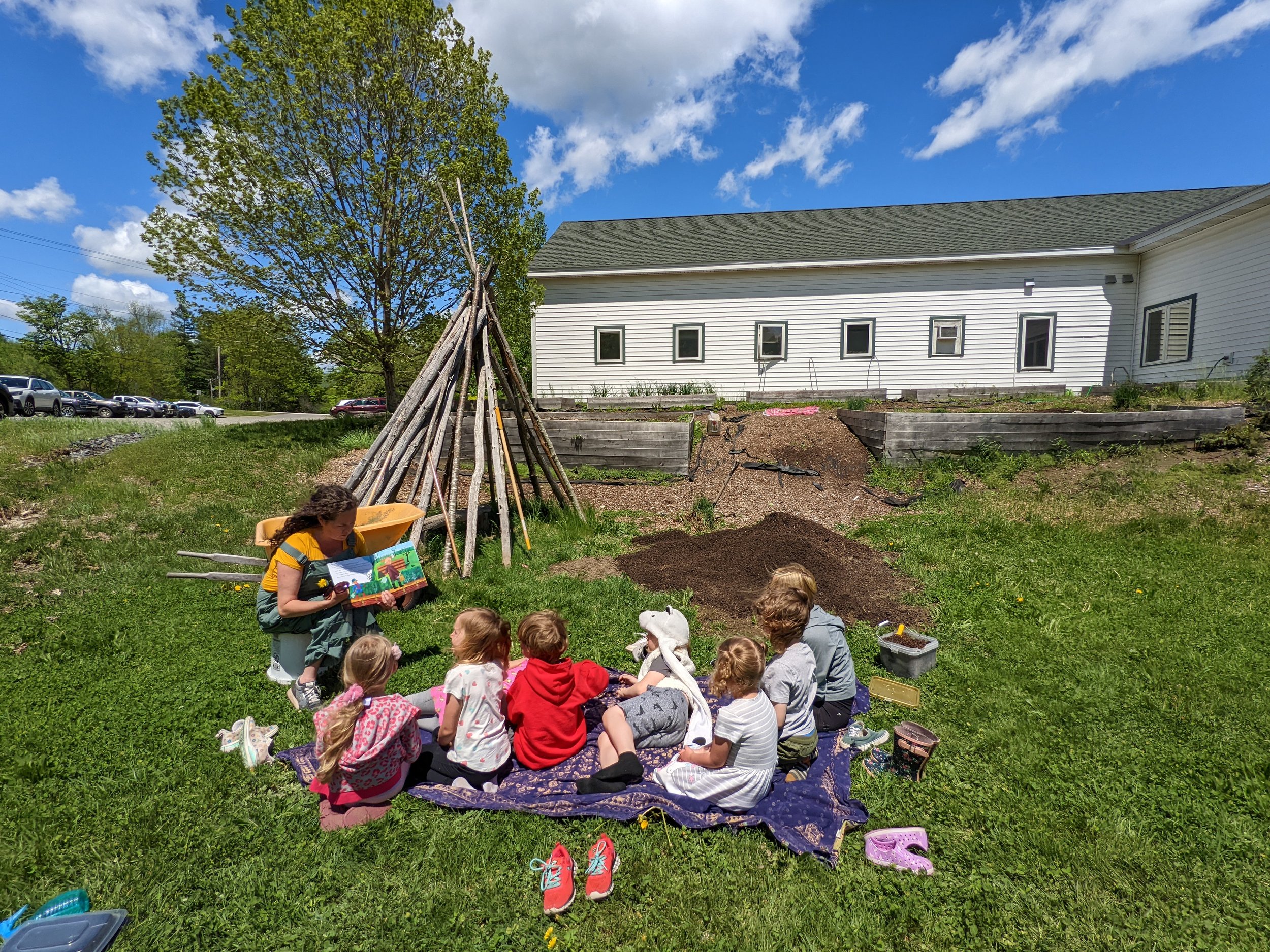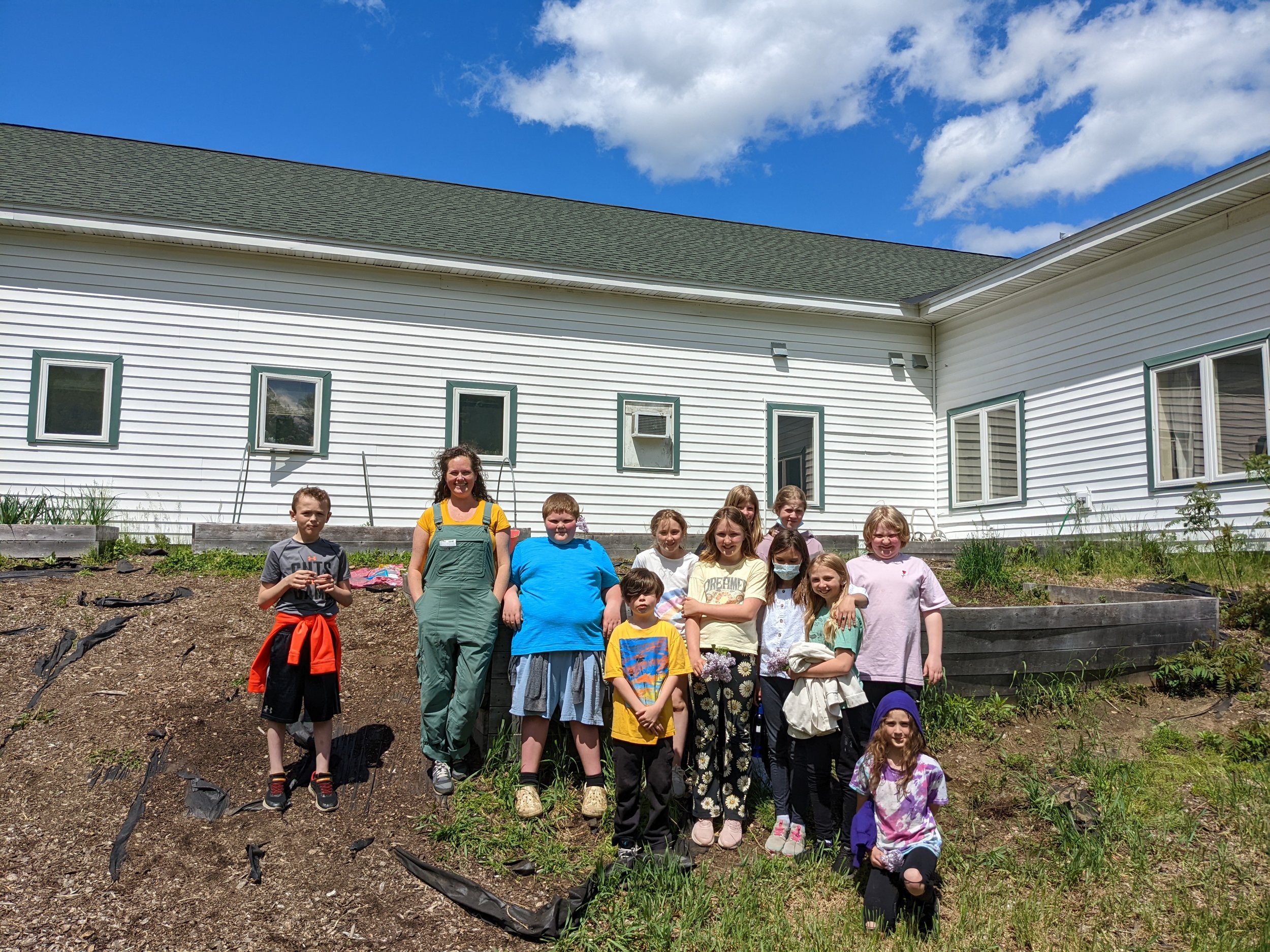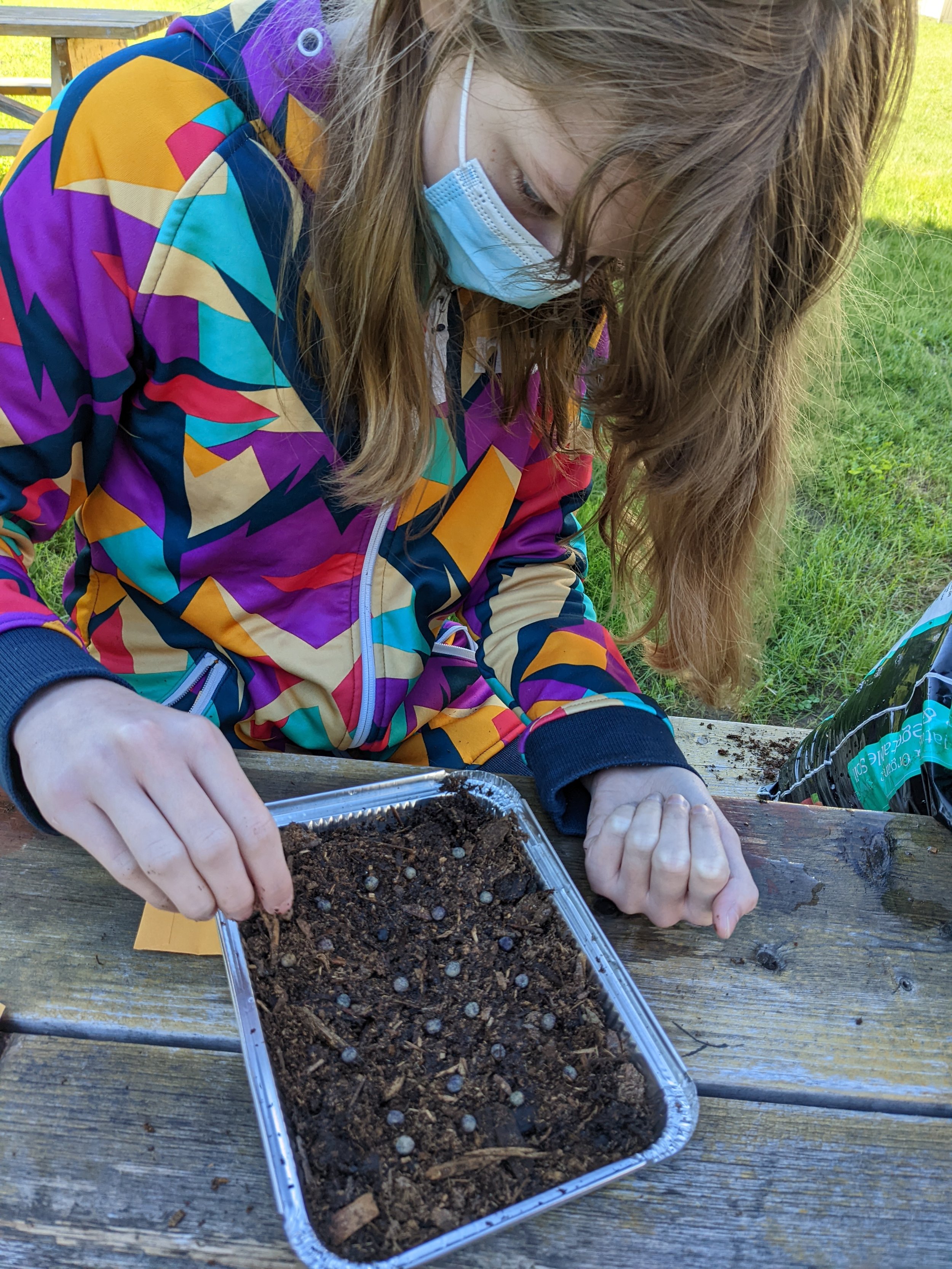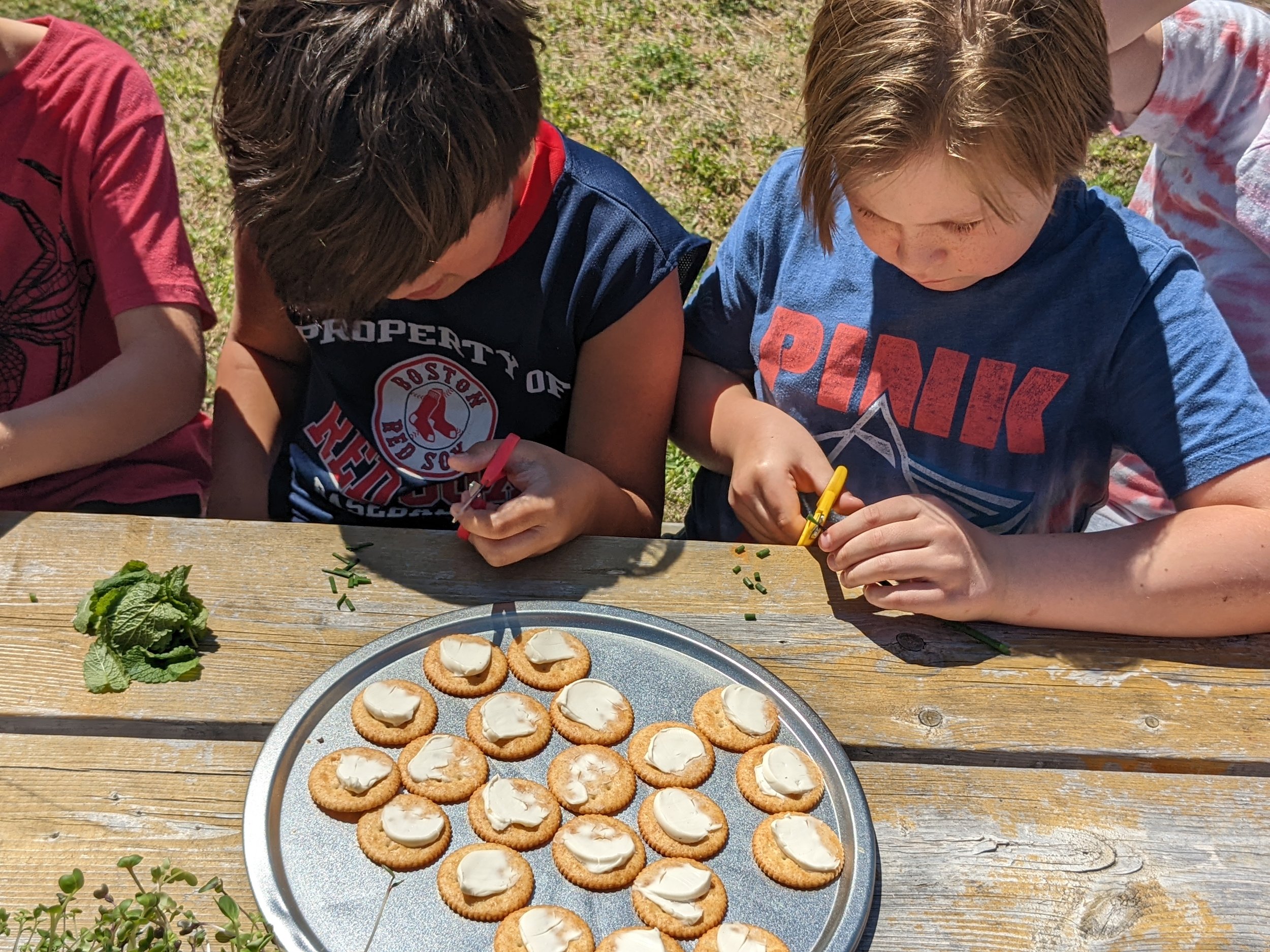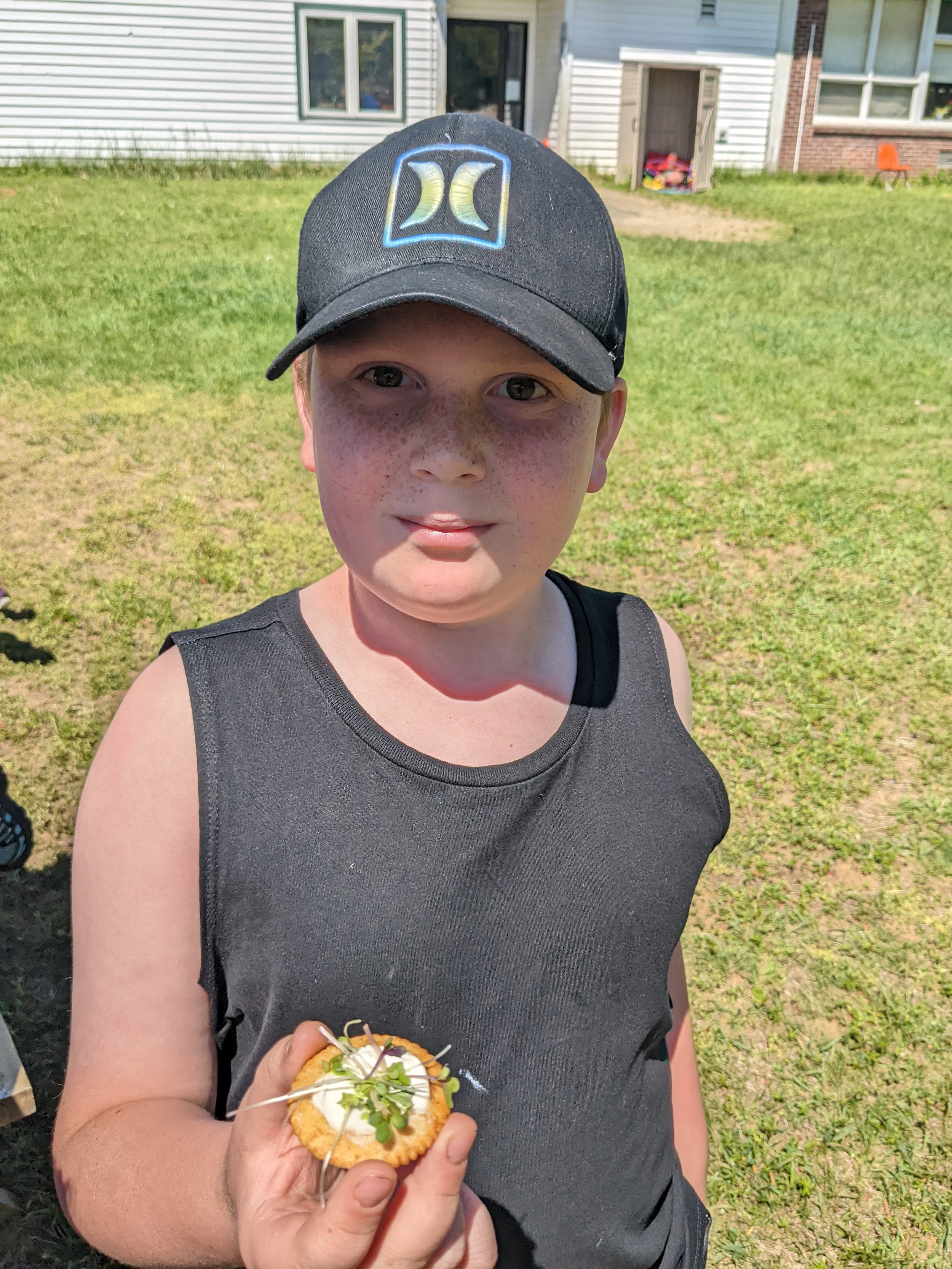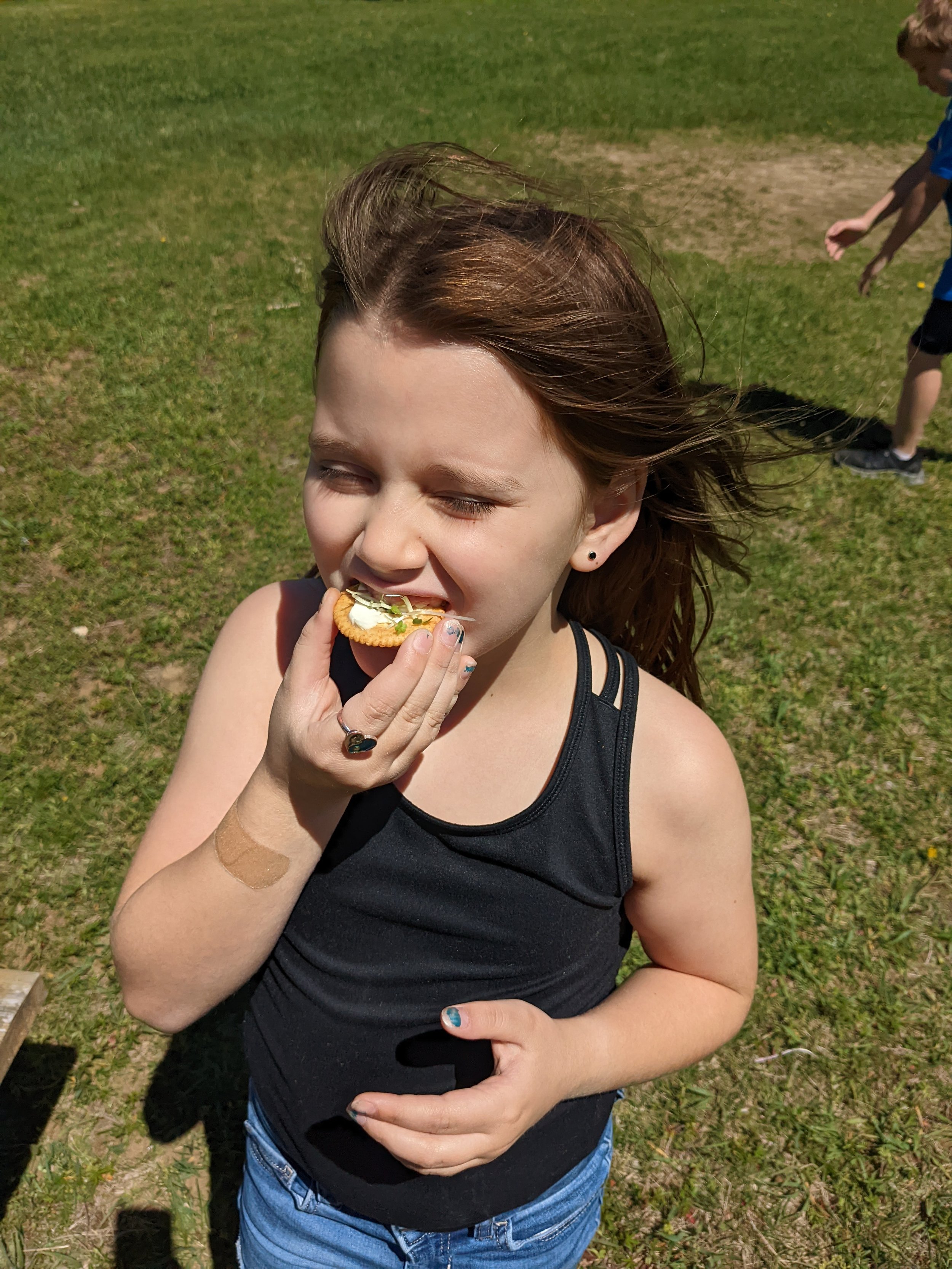Harley Sterling is laser-focused on one goal—feeding kids the best quality food possible. And when Harley has a goal, he makes it happen. Throughout 2021, we’ve seen Harley feed more students than ever before, increase his already impressive local purchasing, reimagine how school meals can be used to feed families, and continue to value and champion his staff.
In the fall of 2020, students were back in school, but Harley knew families were still greatly struggling from the pandemic and its ramifications. He and his team worked hard to feed students nutritious and delicious meals every day, as he has done for years. But he wanted to do more. Over the Thanksgiving break of 2020, the food service team offered the first “meal boxes” to the community, modeling the idea off of a program the Burlington School Food Project had undertaken. Anyone in the community who had a child could pick up a meal box, which included enough groceries for 2-3 meals a day (depending on the time of year), seven days a week, for one child. Boxes were filled per child—so if a family had five children, they could take five boxes. Each box contained fresh fruits and vegetables, whole grains, milk, and packaged foods and recipe ideas for meals using the boxed ingredients. On top of all this, Sterling purchased as much local food as possible. Think Bread Shed bread, Miller Farm milk, and Vermont grass-fed beef and produce. This amounted to Sterling’s program spending over $100,000 on local purchases from Food Connects, his local food distributor, for meal boxes alone.
The first two meal box distributions were a roaring success, with over 700 boxes going home with families over the December break. Sterling and his team knew then they were meeting an essential need in the community and vowed to continue making food available to families in whatever ways possible. The team offered boxes over the February and April vacations and made a plan to continue this service throughout the summer.
During the summer of 2021, Harley and his team sent hundreds of meal boxes home every week—averaging around 500 boxes/week., They also continued to feed children who were participating in summer programming at the schools in WNESU. In addition, Sterling secured a contract to feed the children in Keene summer programs. This meant that approximately 500 additional students a day were being fed scratch-cooked meals with a large portion of fresh and local ingredients. ISterling and his team were serving roughly 2000 meals per day throughout the summer of 2021.
Why would Windham Northeast District be feeding students in Keene? This is where Harley’s exceptional innovation, leadership, and passion combine to allow him to identify and capitalize on opportunities—which leads to benefits not just for students but also for his team, local farmers and producers, and the community. Sterling believes strongly in his team and even more strongly in rewarding and elevating them. He offers his staff some of the highest kitchen wages in Vermont, alongside great benefits. One staff member reflected “I’ve never made more money in a restaurant. This is the best paying kitchen job I’ve ever had, and I’ve had many.” Harley doesn’t decline requests for time off. Once a staff member is trained, they are trusted and given a lot of autonomy. He is serious about elevating the community’s image of school nutrition personnel. Sterling is trying to inspire a new movement that he believes is just beginning—a movement to transform school food. Sterling explained, “It starts with taking care of people. Paying them. Giving them great benefits. And elevating them so that people see them and value them for what they are: badass chefs.” He hopes this will motivate others to join the effort.
How can Sterling pay more than “any other kitchen job?” By being innovative, creative, determined, and extremely hard-working. By contracting with the Keene summer program, he nourished more students with high-quality food andsecured more funding to pay respectable wages and pay for high-quality ingredients.
Food Connects is honored to work with Harley, and we are inspired by his work. Many school food professionals are doing amazing work in Vermont. But his steps towards increasing access to high-quality food, decreasing stigma, and elevating his team prove he is an exceptional innovator and a true School Nutrition Hero.









